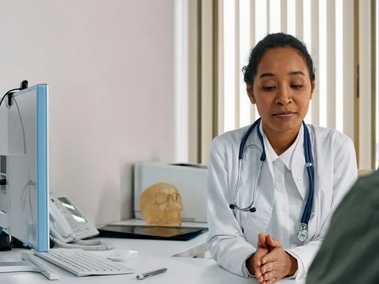Seeing a respiratory consultant for the first time can be a crucial step in diagnosing and managing any breathing or lung-related issues.
Here’s a guide on what to expect during your consultation:
Initial Assessment with a Respiratory Consultant
Medical History
- I will take a detailed medical history.
- Be prepared to discuss your symptoms, when they started, their frequency, and any factors that worsen or relieve them.
- You might be asked about your occupation, exposure to pollutants or allergens, smoking history, and family history of respiratory diseases.
Symptom Discussion
- I will focus on specific symptoms like shortness of breath, coughing, wheezing, or chest pain.
- I would want to know how these symptoms impact your daily life.
Physical Examination
- Vital Signs: Check your, heart rate, oxygen levels, and other vital signs including peak flow reading.
- Lung and Heart Sounds: Will listen to your lungs and heart with a stethoscope to detect any abnormal sounds, such as wheezing, crackling, or murmurs.
Diagnostic Tests
- Lung function test: A common test that measures how much air you can exhale and how quickly, helping to diagnose conditions like asthma and COPD.
- Chest X-ray or CT Scan: Imaging studies to look for abnormalities in the lungs, such as infections, tumours, or scarring.
- Blood Tests: These may be done to check for infections, inflammation, or other underlying conditions.
- Allergy Tests: If allergies are suspected as a cause of your symptoms, you might undergo skin or blood tests to identify specific allergens.
- Sleep study: Overnight study at home to help diagnose sleep apnoea
Discussion of Findings
- Once the initial assessment and tests are done, I will explain the findings, including possible diagnoses, the severity of your condition, and the implications for your health.
Treatment Plan
Medications
- Depending on your diagnosis, the consultant may prescribe medications such as inhalers, steroids, or antibiotics.
Lifestyle Changes
- You may receive advice on quitting smoking, avoiding triggers, or improving your diet and exercise regimen.
Further Tests
- If needed, the I might recommend additional tests or refer you to other specialists.
Follow-Up with a Respiratory Consultant
Regular Monitoring
- Chronic conditions like asthma or COPD often require regular follow-ups to monitor your condition and adjust treatment as necessary.
Self-Management Plan
- You may be given an action plan to manage your symptoms at home, including when to seek emergency care.
Questions and Concerns
- Don’t hesitate to ask any questions you have about your condition, treatment options, or what to expect going forward.
- It’s important to understand your diagnosis and be an active participant in your care.
Tips for Your Appointment with a Respiratory Consultant:
Bring a List:
- Write down your symptoms, medications, and any questions you have beforehand.
Take Notes
- During the consultation, take notes or bring someone with you to help remember important information.
Be Honest
- Provide accurate information about your lifestyle and symptoms to ensure you receive the best possible care.
Seeing a respiratory consultant can provide clarity on your symptoms and guide you toward better respiratory health.

